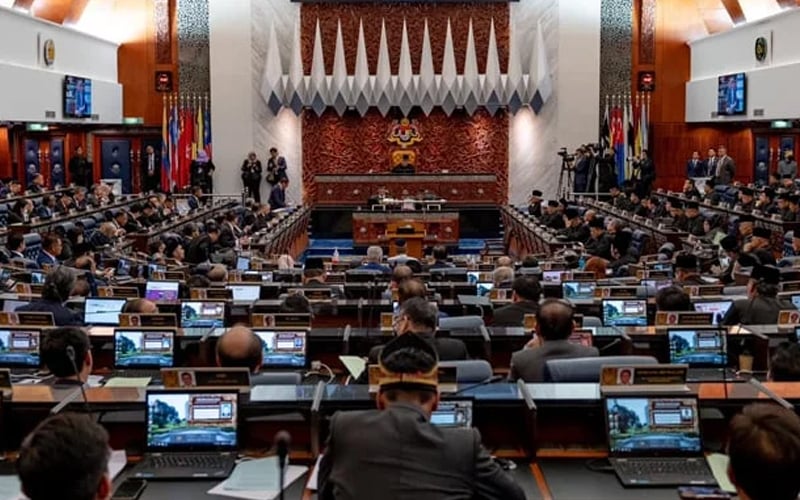
From Rajan Navaratnam
Recently, it was proposed that a law be enacted to ensure that a government that comes to power after a general election should be allowed to govern for its full term, until the next general election, free from any external threats of substitution.
This proposal that was put forward had raised many differences of opinion from various quarters.
It is somewhat fathomable that such a proposal was put forth in view of the political climate in recent times. After all, a stable government is collectively essential for the good of a nation and its subjects for a myriad of reasons.
However, while this proposition may have arisen for good intentions, it could only exist and come to fruition if it is in harmony with the intent, purpose, and spirit of the constitution.
The salient feature of the proposed bill is unknown at this time, but it could be assumed that it is somewhat in pari materia to a similar proposal that was previously enacted by the British Parliament known as the Fixed-term Parliaments Act 2011, which has since been repealed in 2022.
The UK’s now repealed Act predominantly provided that the date for the general election shall be fixed once every five years.
However, an early general election could be called if either there was a vote of no-confidence by way of a simple majority, or a call for early elections by way of a two-thirds majority of Members of Parliament.
With that said, it must be noted that the UK does not have a written or codified constitution unlike Malaysia.
The UK has an unwritten constitution in that it comprises various documents such as statutes, conventions, treaties, and judicial decisions and, therefore, the UK Parliament reigns supreme and is vested with the ultimate power to make and repeal laws. In this regard, the defining principle of the UK’s unwritten constitution is parliamentary sovereignty.
To the contrary, Malaysia has a codified constitution setting out the principal rules and it is the constitution that reigns supreme, not Parliament.
Therefore, any laws to be enacted by Parliament must be in conformity with the Federal Constitution. Consequently, in the context of formulating a law to enable a government to rule for a full term, it is vital to examine what the constitution has set forth in respect of a formation of a government.
Article 40(2) of the constitution specifies that the Yang di-Pertuan Agong may in his discretion appoint the prime minister and pursuant to Article 43(2), the King shall appoint a prime minister, from among the Members of Parliament, only if it is in the King’s judgment that the person is likely to command the confidence of the majority of the MPs.
Subsequently, in the event the prime minister ceases to command the confidence of the majority, then pursuant to Article 43(4) of the constitution, unless at his request the King dissolves Parliament, the prime minister would have to tender his resignation together with his Cabinet.
Notably, Article 43(5) of the constitution prescribes that ministers only hold office during the pleasure of the King unless such an appointment has been revoked by the King on the advice of the prime minister.
Undoubtedly, one way to determine if the prime minister continues to command the majority is that a motion of no-confidence could be made in Parliament and if the motion is passed, then Article 43(4) would apply.
It would, therefore, appear that a proposal to enact a law to ensure that an existing government remains in power for a full term, assuming the prime minister ceases to command a majority, would be inconsistent and ultra vires the constitution. Additionally, the power to appoint the Cabinet, albeit they are appointed by the King on the advice of the prime minister, their continuance to hold office is vested with and held at the pleasure of the King and not Parliament.
Unlike the UK, in Malaysia, any laws to be enacted must be in accordance with the constitution and, in this regard, Article 4 of the Federal Constitution states:
“This constitution is the supreme law of the Federation and any law passed after Merdeka Day which is inconsistent with this constitution shall, to the extent of the inconsistency, be void.”
Further, Article 160(2) of the constitution interprets the word “law” to include written and common law, and written law includes the constitution and, therefore, any formulation or amendment of laws that is inconsistent with the constitution is to that extent void and unenforceable.
Therefore, any law that is intended to be proposed and if passed, but violates the basic tenets of the constitution, would be void and consequently would be struck down by the courts by the power vested with them pursuant to Article 121 of the constitution.
In epilogue, while the debate and opinions on the proposed bill to avert attempts to remove or displace a government will continue, it would be cerebral that the constitution be at the forefront to all concerned.
To quote the words of George Washington, “the constitution is the guide which I never will abandon”. - FMT
Rajan Navaratnam is a senior advocate who writes frequently about the law.
The views expressed are those of the writer and do not necessarily reflect those of MMKtT.


No comments:
Post a Comment
Note: Only a member of this blog may post a comment.